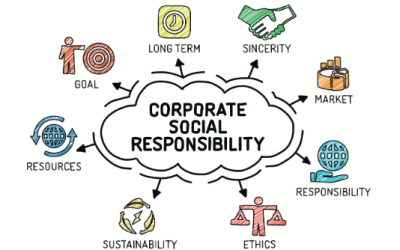Lobbying implies the engagement of specialized people in charge of building positive business relations between organizations, whose representatives are political and state institutions. Lobbying means working on a positive presentation of a case, event or organization, to governmental, legislative or parliamentary institutions.
Subjects of lobbying are:
Interest group (organization) → Lobbyist → Decision maker → GOAL
↑↓ Lobby groups ↑↑↑
The essence of lobbying:
1. Representation of organizational interests
2. Mediation of interests between the decision maker and the interest group
3. Representation of clients’ interests
4. Achieving a balance between different interests
Lobbyists must always know exactly what they want to achieve by lobbying, and clearly define the requirements of lobbying. Lobbying is used to influence the adoption of laws, political decision-making and regulations, etc.
Lobbying can be:
Internal – connecting with the creators of laws and other acts and influencing the legislator as a decision maker
External – indirect influence by gaining a certain number of influential people or financial support.
The main task of lobbying is to provoke and create change. The lobbyist’s task is to win over the decision maker in favor of the organization he represents.
Basic principles of lobbying:
1. It is necessary to tell the truth – if the accuracy of a statement is doubted, it is difficult to regain trust. A lobbyist should negotiate with strong arguments, based on relevant and truthful information
2. One should never promise more than it is possible to do – if a legislator is promised support that is not there, the consequences are unfathomable. The success of lobbying depends on the ability to secure the support that has been promised
3. It is necessary to know how to “listen” in order to understand exactly what is “heard” – there are a number of unwritten rules for successful negotiation, stylized phrases in communicating in political language. This specific way of communication must be well known and understood
4. The staff who work with the legislator are there to cooperate with him – it is important to establish interpersonal relations with people who are in important positions. These people rely on other staff for a large part of their work. Some of them also have important functions, they may be in a position to participate in decision-making, have great powers at work, etc
5. Do not arrange surprises – politicians do not like surprises, they must be familiar with all available data, they must know who is on their side and who is not.
Lobbying is organized within the business unit for public relations, and refers to strategically oriented communication with organizations and institutions that have a legislative role.
The basics of lobbying can be formulated as a series of rules that must be followed:
1. You need to define the key talking points and what you want to achieve
2. It is necessary to know politicians and representatives of legislative institutions well – who they are, where they are from, what their motives are, what their function is in politics, etc.
3. Every proposal (subject) of lobbying must have the consent of the public – trends in society must be followed and see what it is that the interest group can support.
4. For each meeting it is necessary to have prepared material with basic theses
5. Involve people from the area being lobbied for, because they best know the specifics of that area that are important to the negotiation
6. It is important to identify individuals and groups that will be against the object of lobbying
7. It is necessary to be interested in cooperation with political allies
8. The rules of procedure and compromise must be understood
9. Listing of all individuals and groups providing support
10. Lobbyists have the opportunity to negotiate with both sides and see their strengths and weaknesses
11. A lobbyist must be: polite, communicative, kind, punctual, etc 12. It is much easier to stop than to start a business
13. No one should be neglected because they may be useful at another time 14. If something is not asked for, it cannot be obtained
15. The success of the project depends 20% on the problems and circumstances, and 80% on the lobbyist
The rules of successful lobbying – understand the decision maker’s position!





0 Comments